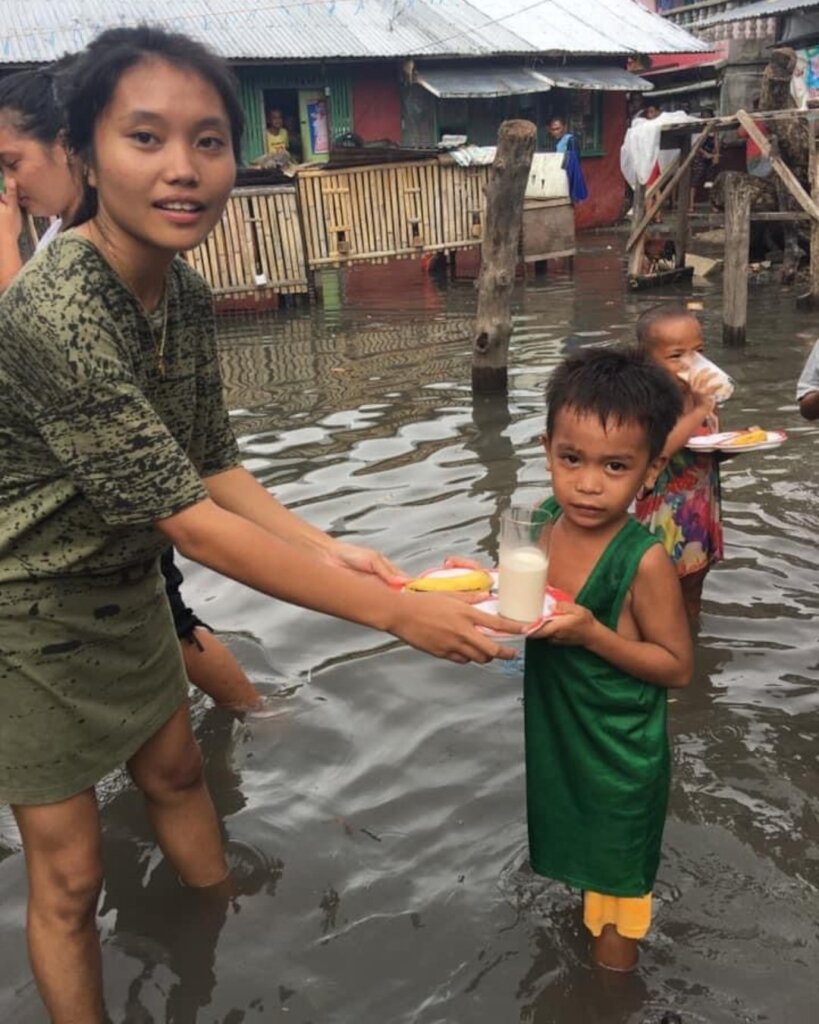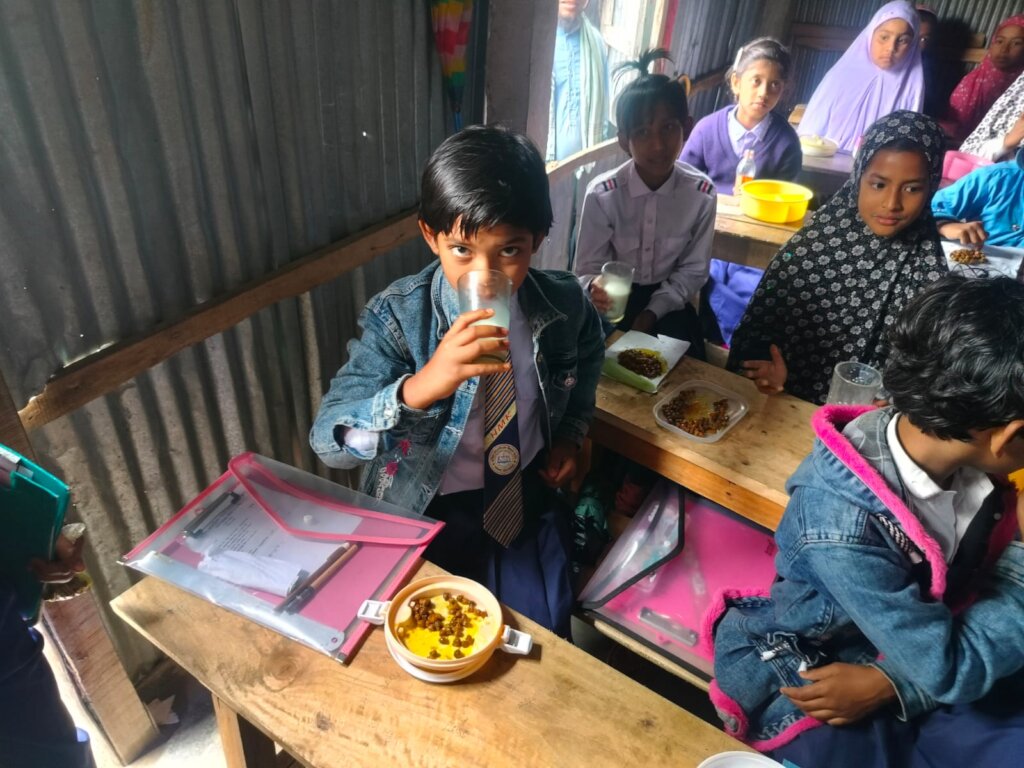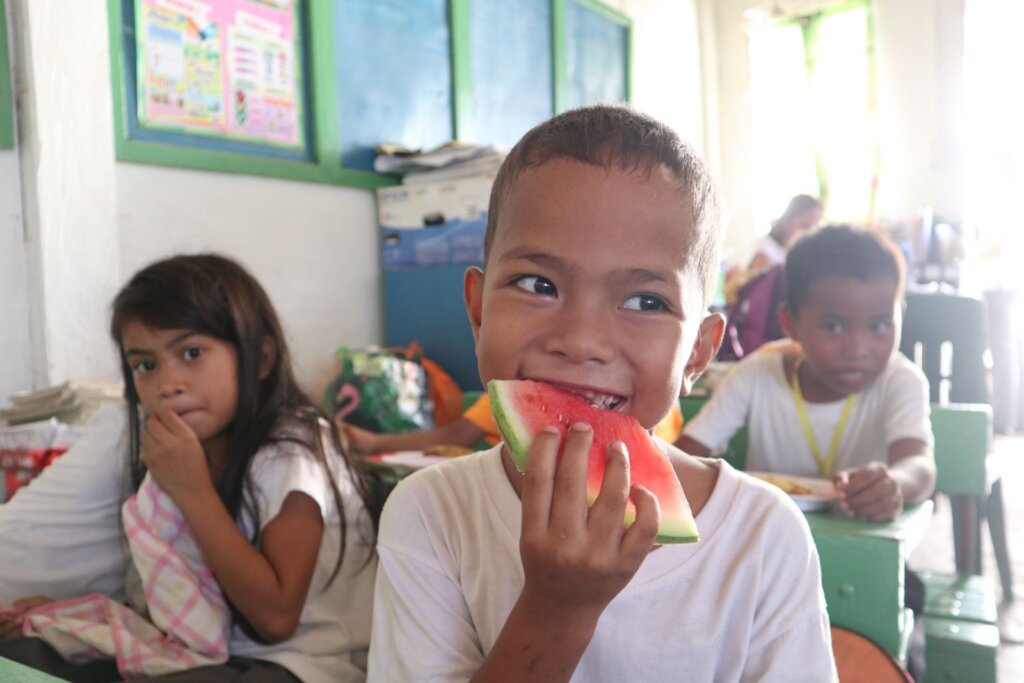By Thrive Team | Project Leaders
DID YOU KNOW HUNGER IS ONE OF THE WORLD’S BIGGEST HEALTH PROBLEMS TODAY?
Every year, enough food is produced to feed over 10 billion people. Yet, 66 million children face daily hunger, and since the pandemic, developing countries have seen a 25% increase in childhood hunger.
According to research, Asia ranks first in childhood hunger, with the most hungry people (over 500 million). In Southeast Asia, nearly 75% of children’s diets in Bangladesh and the Philippines do not meet dietary standards. Bangladesh alone has the highest rate of childhood hunger, and in the Philippines, one-third of school-aged children are stunned. For the millions of children experiencing hunger, the effects are long-lasting.
CHILDHOOD HUNGER IS SERIOUS
Childhood hunger affects millions of children worldwide, especially in parts of Asia like the Philippines and Bangladesh. The United Nations defines hunger as a painful or uncomfortable physical sensation caused by a lack of food. What does this mean?
Child hunger is not just about skipping meals for a few hours. It is an all-consuming sensation that causes children to experience physical sensations like stomach pains, weakness, dizziness, and fatigue. This can lead to emotional distress, anxiety, and stress as they cope with the uncertainty of when their next meal will be.
CHILDREN MAY EXPERIENCE STUNTED GROWTH DUE TO HUNGER
Stunting occurs due to recurrent or long-term undernutrition in early childhood. Children who experience stunting are less likely to reach their full physical and cognitive potential, which could cause d learning difficulties and chronic health problems.
The Philippines and Bangladesh account for more than 30% of school-aged children who experience stunting. Bangladesh has the highest rate of underweight children in South Asia, and the Philippines ranks fifthworldwide for the highest number of stunted children.
HUNGER HITS PHYSICALLY, MENTALLY, AND EMOTIONALLY
Not having enough food can severely impact children’s physical health. Research shows that children with little to eat develop up to 40% more health deficits since they lack the necessary vitamins to grow. The impact of this is that children may develop severe physical illnesses such as anemia and asthma. Researchers have also found that hunger is a leading predictor of emotional and mental health challenges among school-aged children. Research suggests chronic hunger may alter children’s brain function, influencing mood regulation and behavior.
Growing up in an environment where food insecurity is prevalent can create chronic stress and anxiety for children, which may increase the risk of developing mood disorders like depression and lead to children engaging in unhealthy behaviors to manage stress or alleviate emotional distress.
Coping with the physical discomfort of hunger and worrying about where their next meal will come from can also impact a child’s mental well-being, affecting their confidence, self-esteem, and motivation to pursue their dreams.
CLIMATE CHANGE EXASPERATES CHILDHOOD HUNGER
More than 56% of Bangladeshis experience extreme climate change, and around 12 million children live in areas with very high climate exposure. The Philippines Country Climate and Development Report also suggests climate change poses a significant risk factor for Filipinos. What does this mean for school-aged children? In the circumstances posed by extreme climate change, families have increased challenges in providing their children with nutritious meals.
Hunger can overshadow a child’s aspirations, not because they no longer have goals but because their primary focus shifts towards meeting their basic food needs. When children experience hunger, they are concerned with finding food to alleviate their hunger, which can consume much of their physical and emotional energy. The result is that they no longer feel enthusiastic or motivated to pursue their aspirations, as they may perceive their dreams as unrealistic given their current circumstances.
HUNGER MAKES LEARNING DIFFICULT FOR CHILDREN
One of the most significant impacts of childhood hunger is on brain development. Children require nutritional food to improve their memory function, attention, and problem-solving skills. When they do not have access to nutritious food, they may experience deficiencies in essential nutrients that help cognitive development, which can impact their academic performance.
Children need food to learn effectively. By providing the body with the proper nutrients it needs to grow, children won’t experience difficulties focusing, retaining information, and participating actively in classroom activities. Unfortunately, 66 million children from developing countries go to school hungry every day, which may negatively impact their concentration, memory, and overall academic performance.
TOGETHER, WE CAN FIGHT CHILDHOOD HUNGER
No one deserves to be hungry. Yet, 64% of the world’s malnourished children live in Asia, and more than 15% of this population stays in communities within South and Southeast Asia, which puts them at a high risk of experiencing severe malnutrition and hunger, with 60% of these children who are extremely hungry are girls.
Fighting child hunger is not just about feeding a child once. It is continuously equipping children with the necessary nutrients to grow. Through our daily school meal program, Thrive is doing everything we can to transform children’s lives, especially girls, who face discriminatory practices, such as unequal distribution of food within households and preference for feeding male children, from the effects of hunger. You can be a part of it, too! View our school meal program to see how you can help kids thrive today.
Links:
By Kasey Krease | Project Leader
Project reports on GlobalGiving are posted directly to globalgiving.org by Project Leaders as they are completed, generally every 3-4 months. To protect the integrity of these documents, GlobalGiving does not alter them; therefore you may find some language or formatting issues.
If you donate to this project or have donated to this project, you can recieve an email when this project posts a report. You can also subscribe for reports without donating.
Support this important cause by creating a personalized fundraising page.
Start a Fundraiser

